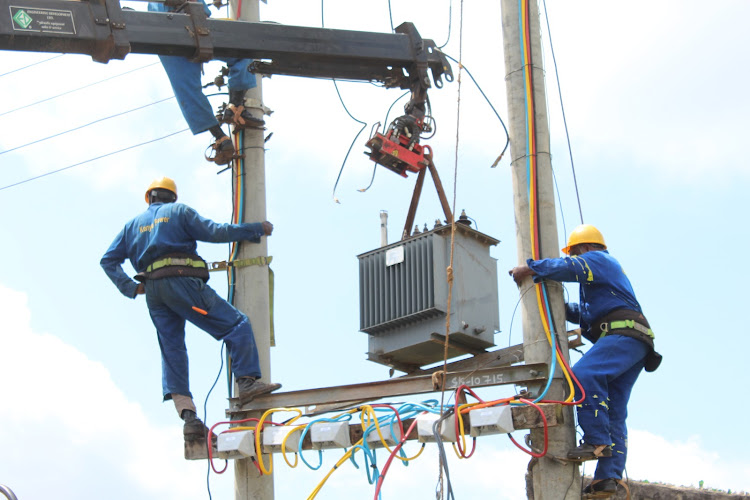Super Metro Matatus Suspended Yet Again
Nairobi’s public transport sector faced another jolt as the Transport Licensing Appeals Board (TLAB) ordered Super Metro Limited, one of the city’s largest matatu Saccos, to suspend operations for three days. The directive, effective immediately, aims to ensure the Sacco finalizes compliance with stringent safety and regulatory measures mandated by the National Transport and Safety Authority (NTSA). This latest suspension, following a turbulent month for the operator, has sparked frustration among commuters and reignited debates about regulation in Kenya’s matatu industry.
What Happened?
The TLAB’s ruling comes on the heels of a partial reprieve for Super Metro, which had its operating license suspended by NTSA on March 20, 2025, over multiple violations. After a temporary reinstatement on March 24, the board imposed eight strict conditions for the Sacco to meet before fully resuming operations. On April 14, TLAB directed Super Metro to halt services from April 15 to 17 to complete these requirements, citing the need to prioritize passenger safety, such as:
Driver Compliance: Super Metro must disengage 269 drivers flagged as non-compliant, with 42 others required to undergo retesting at the Likoni Driver Test Centre.
Vehicle Inspections: The Sacco must present all 523 vehicles for a compliance audit, addressing issues like expired inspection certificates and faulty speed limiters.
Safety Sensitization: A mandatory road safety program for all drivers, facilitated by NTSA officers, must be conducted, with detailed reports submitted.
Labor Regulations: The Sacco is required to provide signed staff contracts and proof of statutory deductions like PAYE, NSSF, and NHIF.
The Sacco issued a statement apologizing to customers, promising to “provide safe, reliable, and efficient transport services” once operations resume on April 18.
Why Now?
The suspension stems from ongoing concerns about Super Metro’s adherence to the Public Service Vehicles Regulations, 2014. NTSA’s March inspection exposed alarming lapses: 15 vehicles had expired inspection certificates, eight lacked valid Road Service Licenses, and 109 drivers were cited for speed violations, with 64 failing a March 10 retest. A tragic March 12 incident, where passenger Gilbert Thuo Kimani allegedly fell to his death over a Sh30 fare dispute on Thika Road, intensified scrutiny, with the driver arrested and the crew suspended.
Super Metro contested NTSA’s initial ban, calling it “unfair” and claiming 90% compliance by April. The Sacco argued that all drivers had been retrained and vehicles reinspected, but TLAB deemed these efforts insufficient, ordering the three-day pause to close remaining gaps. The board’s chairperson, Dr. Adrian Kamotho, emphasized that no vehicles would return to the roads until full compliance is verified.
Commuter Woes and Industry Ripples
For Nairobians, Super Metro’s absence is a major disruption. The Sacco’s fleet, known for serving routes like Thika Road, Kikuyu, and Kitengela, is a lifeline for thousands. Commuters took to X to vent, with one user lamenting, “Super Metro down again? How do we move now?” Others expressed mixed feelings, acknowledging the need for safety but criticizing the blanket suspension. “Why punish everyone for a few rogue drivers?” asked another post.
The timing is particularly inconvenient, coinciding with a recent accident on April 10, when a Super Metro matatu crashed into a lorry in Ruiru, injuring passengers. Though unrelated to the suspension, the incident, attributed to driver fatigue, has fueled public concern about the Sacco’s safety record.
Rival operators like Metro Trans are likely to see increased demand, but the broader matatu sector is on edge. The Matatu Federation, which threatened a strike after the March suspension, has remained silent so far, but industry watchers warn that further NTSA crackdowns could spark unrest. Super Metro’s struggles highlight systemic issues—overworked drivers, lax maintenance, and regulatory loopholes—that plague many Saccos.
Super Metro’s Response
Super Metro’s management has adopted a conciliatory tone, pledging full cooperation with TLAB and NTSA. In a statement shared on social media, the Sacco expressed commitment to “bringing sanity to the sector” and apologized for the inconvenience. Behind the scenes, it’s working to retest drivers, inspect vehicles, and finalize labor records, aiming to pass NTSA’s looming compliance audit.
The Sacco also highlighted its economic role, employing thousands and serving millions of passengers annually. “We’re doing this to protect our customers and staff,” a spokesperson said, urging commuters to bear with the temporary halt.









